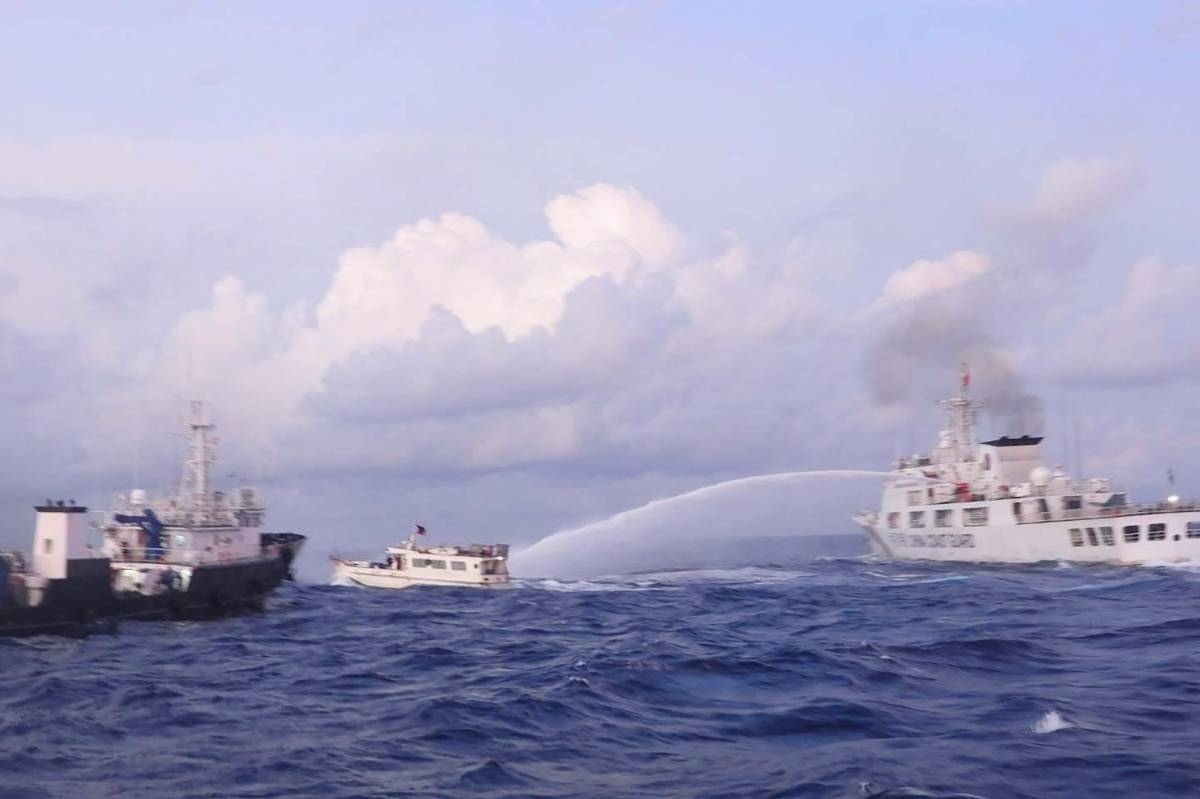BEIJING: China defended its Coast Guard’s actions against Philippine vessels in the disputed West Philippine Sea on Monday, describing them as “professional” and “restrained.” The Chinese foreign ministry spokesperson, Mao Ning, stated that the Coast Guard had taken necessary measures in accordance with domestic and international law.
Emphasizing the legality and reasonableness of the operations, Mao said, “The operations were professional, restrained, reasonable, and legal.” Beijing has also lodged strong protests with the Philippines, as confirmed by the foreign ministry.
In response to the confrontations between the two countries’ vessels at flashpoint reefs in the disputed South China Sea, the Philippines summoned China’s envoy and hinted at the possibility of expelling him. The tensions reached a peak during two separate resupply missions to fishermen at Bajo de Masinloc (Scarborough Shoal) and a small garrison at Ayungin Shoal (Second Thomas Shoal) over the weekend.
Video footage released by the Philippine Coast Guard showed Chinese ships using water cannons against Philippine boats. Additionally, a collision occurred between Philippine and Chinese boats at Second Thomas Shoal, where a few Filipino troops are stationed on a grounded warship. Both countries have exchanged blame for the incident.
Mao reiterated China’s stance, stating, “There have recently been multiple tense situations in the waters around Ren’ai Reef, the responsibility for which lies entirely with the Philippines.” Ren’ai Reef is the Chinese name for Second Thomas Shoal.
She further explained, “The root cause is that the Philippines broke its promise by refusing to tow away the illegally beached warship, attempting to carry out large-scale reinforcements and achieve permanent occupation.”
The developments in the West Philippine Sea have raised concerns among neighboring countries and the international community. The South China Sea, which is rich in natural resources and a vital shipping route, has been a subject of territorial disputes between China and several Southeast Asian nations.
China’s claim to almost the entire South China Sea, based on its “nine-dash line” map, has been a point of contention. The Philippines, along with other claimant countries, has challenged China’s expansive claims through legal means.
The recent incidents between China and the Philippines highlight the ongoing tensions in the region. The use of water cannons and collisions between vessels are clear indications of the potential for escalation. Such actions can undermine stability and hinder efforts to resolve the disputes peacefully.
It is crucial for all parties involved to exercise restraint, adhere to international law, and engage in diplomatic negotiations to address their differences. The international community, including neighboring countries, has a vested interest in maintaining peace and stability in the South China Sea.
As the situation unfolds, it is essential for countries to respect each other’s sovereignty and territorial integrity while upholding the principles of freedom of navigation and unimpeded trade in accordance with international law.
Efforts towards finding a peaceful and mutually acceptable resolution to the disputes will contribute to the overall security and prosperity of the region.







